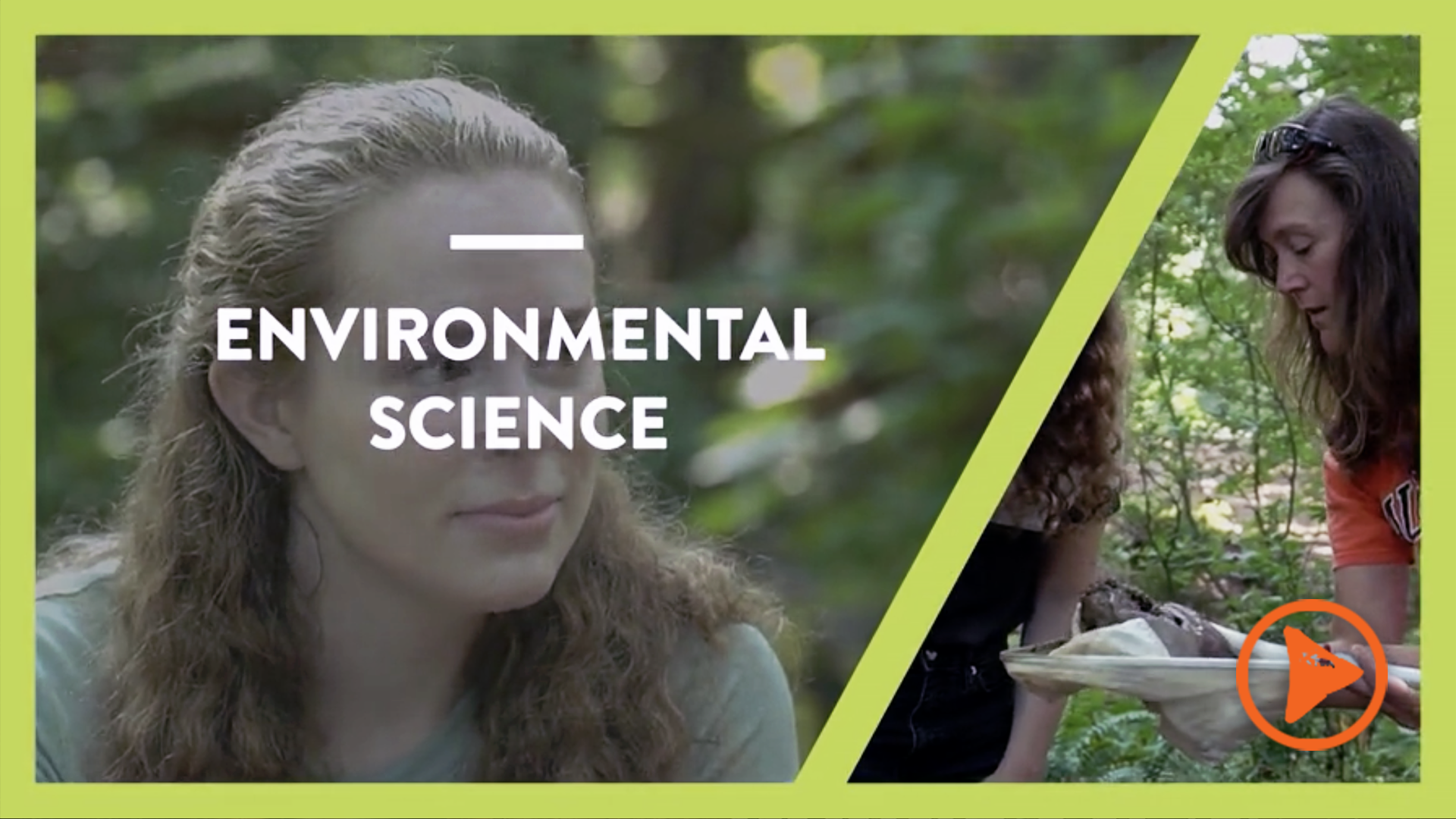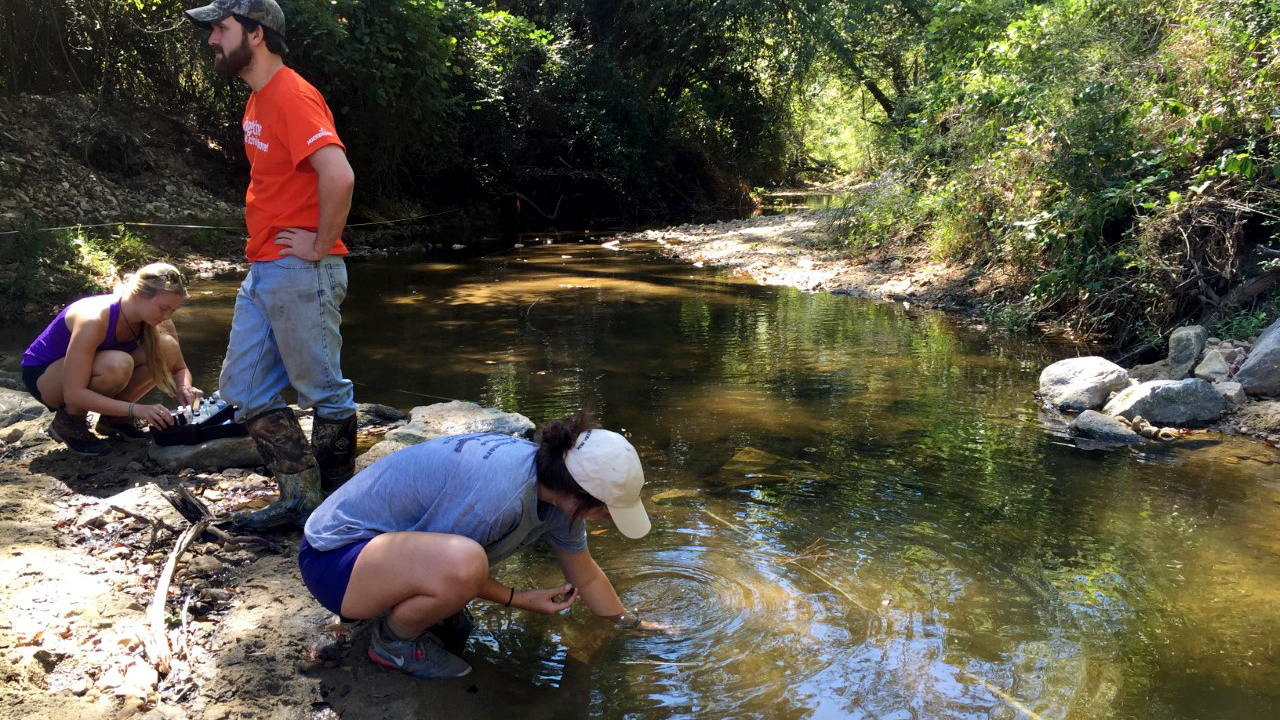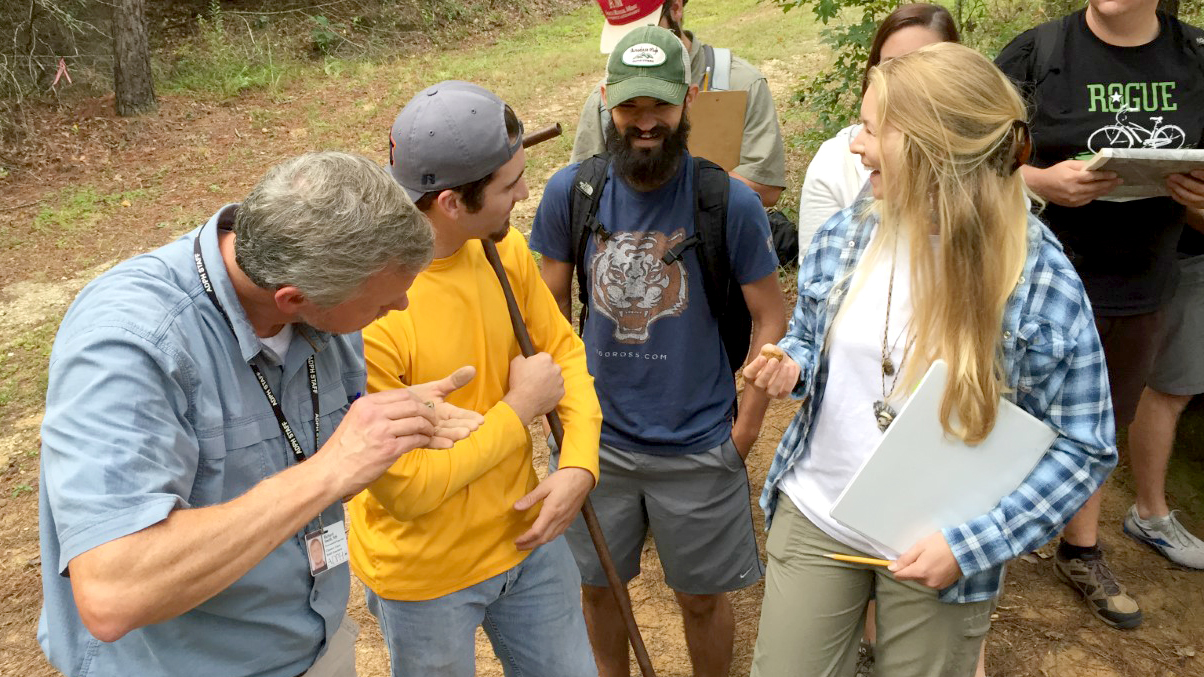
Environmental Sciences
Major
Protecting the world around us
Our Environmental Science major program is an interdisciplinary degree, incorporating studies such as soil science, physics, chemistry, biology and geology. Environmental solutions also frequently require mathematical expertise as well as specific knowledge of air, water and soil environments. Thus, the program is structured to educate environmental scientists broadly, but with considerable depth and flexibility.
Quick Facts About the Major
- The Auburn University environmental science major program originated in 1973, and has continued to expand over the years.
- The objectives of the undergraduate major include students developing necessary technical knowledge and skills, developing effective communication skills, and preparing students for careers in the environmental science profession.
- As an environmental science major, you will gain an understanding of contemporary issues understanding of fundamental science as well as the historical, social, economic and political contexts that scientists face in dealing with environmental issues on local and global scales.
- Since environmental science is a mission-oriented discipline, students will understand and appreciate the unique responsibilities of environmental science professionals to protect and promote the public interest, health and safety.
The environmental science major is specifically tailored to produce graduates who can enter and have an expectation of success in a field that is continually changing.
What you will study
The environmental science major, like the broad field of environmental science, is by its very nature highly interdisciplinary. Although the College of Agriculture administers the program through the departments of Crop, Soil & Environmental Sciences, College of Engineering and the College of Science & Mathematics are equal partners in developing the curriculum, guiding student development and providing instruction.
Environmental quality issues tend to be complex and expertise in soil science, physics, chemistry, biology and geology is often needed to understand and appreciate a specific problem.
Major Curriculum Options & Requirements
PROFESSIONAL ELECTIVES
The Auburn University Environmental Science curriculum is organized around a core of courses that are required of all students. Students desiring to specialize or expand their knowledge in a particular subject may also take professional elective courses of their choosing. A minimum of 22 professional elective hours are needed to graduate but a student may take as many as they wish. Currently there are 94 designated courses across Auburn University. During advising week discuss with your adviser to see which electives are best for you.
What can I do with a Major in Environmental Sciences?
Find out careers you can have by visiting our Career Discovery services page.



